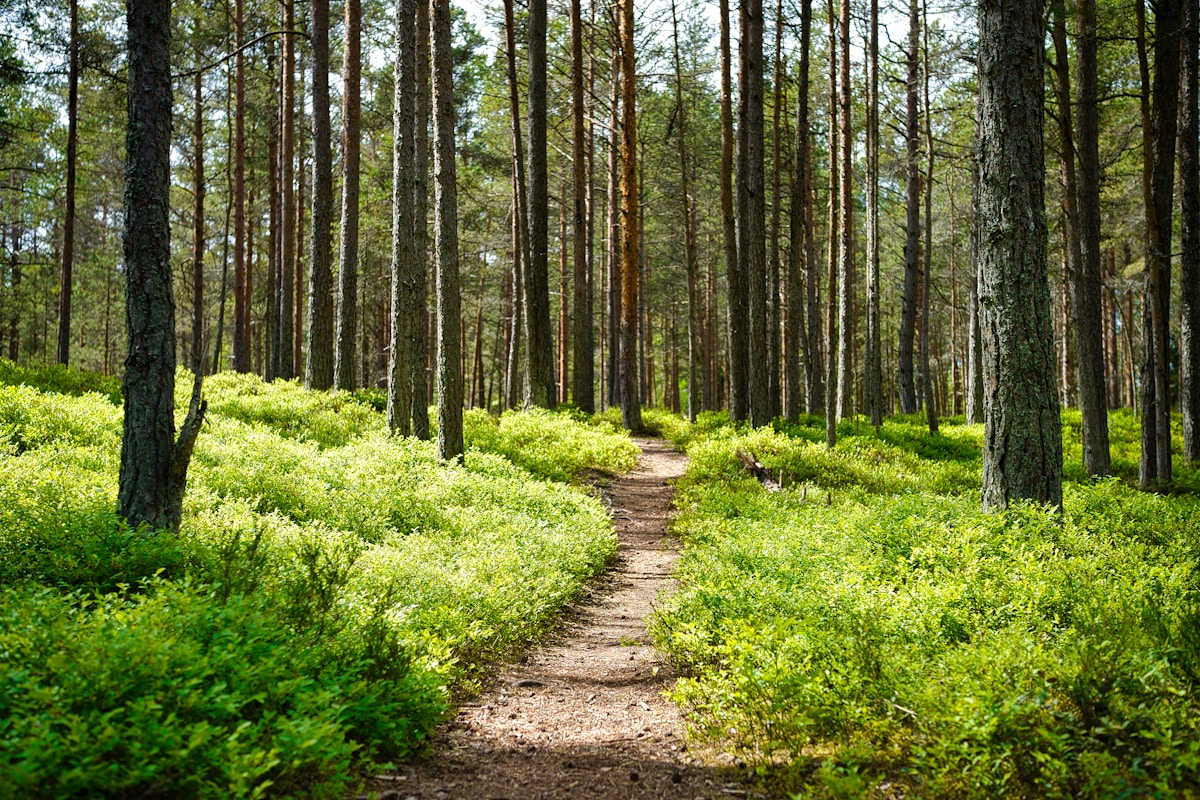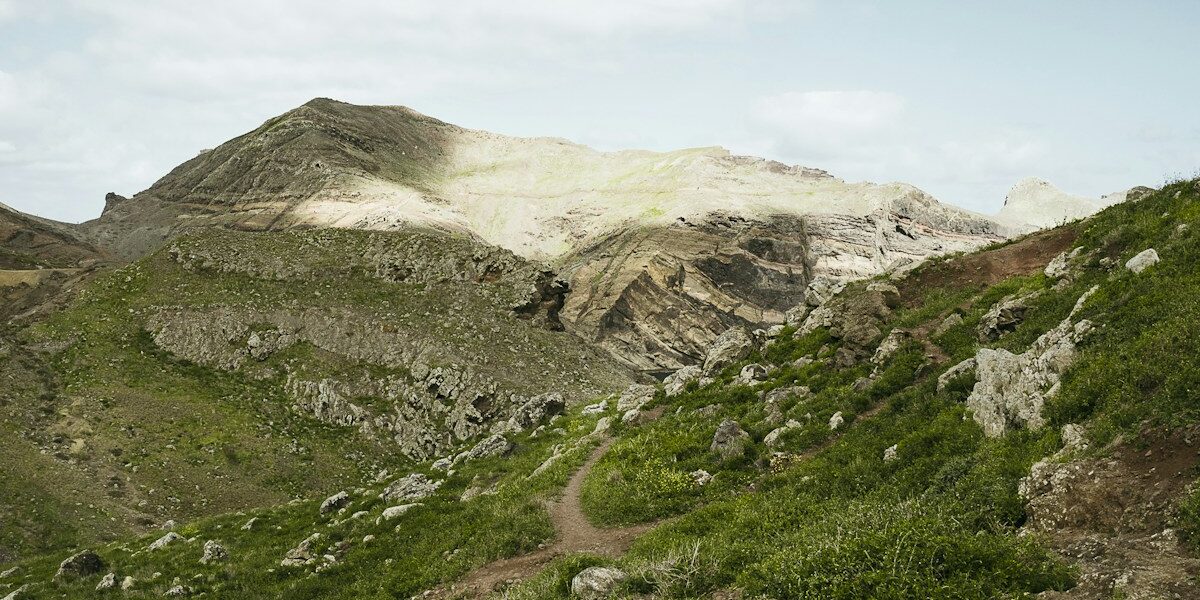The Benefits of Hiking in Solitude
The Benefits of Hiking in Solitude
Hiking alone has a unique set of benefits. As someone who used to think solo hiking sounded lonely and maybe a little sad, I can tell you the reality is completely different. It invigorates the mind, improves physical health, and fosters a deeper connection with nature. Probably should have led with this: my best trail experiences have been solo trips, not group outings.
Mental Clarity

Hiking alone allows for uninterrupted thought. The absence of conversation means your mind can wander freely. This can lead to new ideas and solutions to problems—I’ve solved more work issues on solo hikes than in any meeting room. The natural environment also promotes mindfulness, helping to reduce stress and anxiety.
Self-Reflection
Time alone in nature provides an opportunity for self-reflection. It’s a chance to think about past experiences, set future goals, and assess current life situations. This can lead to personal growth and increased self-awareness. I’ve had more honest conversations with myself on remote trails than I ever have anywhere else.
Enhanced Creativity
Solitude in nature can boost creativity. Without distractions, the mind can access deeper thoughts and ideas. Many artists and writers find inspiration during solitary hikes, and while I’m neither of those things, I understand why they do. Something about sustained movement without input from others opens up mental space.
Physical Benefits
Hiking is a form of exercise that benefits the body. When hiking alone, individuals can focus entirely on their pace and physical needs, leading to a more personalized and effective workout. No one is waiting for you or pulling you faster than you want to go.
Cardiovascular Health
Regular hiking strengthens the heart and improves blood circulation. It reduces the risk of heart disease and hypertension. A solitary hike can be done at a pace that suits individual fitness levels, making it adaptable to anyone’s health routine. I go harder on solo hikes because I’m not modulating for anyone else’s comfort.
Muscle Strength
Hiking, especially on varied terrain, helps build muscle strength. This includes muscles in the legs, core, and lower back. Solo hikers can choose trails that challenge specific muscle groups to enhance the benefits. My legs have never been stronger than when I was doing regular solo trips on steep terrain.
Improved Endurance
Hiking also improves overall stamina. Gradually increasing the difficulty of hikes can help build endurance over time. Solitary hikers have the flexibility to push limits or take it easy depending on their energy levels. Some days you want to crush miles, other days you want to sit by a stream for an hour. Both are valid.
Connection with Nature
Hiking alone enhances the experience of being in nature. Without the distraction of conversation, the hiker can fully immerse in the surroundings. I notice things on solo hikes I would completely miss while chatting with someone else.
Observation Skills
Solo hiking sharpens observational skills. The quiet allows one to notice the details of the environment, from the rustle of leaves to the call of birds. This heightened awareness can lead to a deeper appreciation of nature’s intricacies. I’ve started identifying birds by their calls because I actually hear them now.
Wildlife Encounters
Wildlife tends to be less disturbed by a solitary hiker. This increases the chances of encountering animals in their natural habitats. These moments can be quite rewarding and provide learning opportunities. A solo hiker making minimal noise sees things that groups never will.
Environmental Awareness
Spending time in nature alone can foster a greater sense of environmental responsibility. Witnessing the beauty and fragility of ecosystems firsthand can inspire efforts to protect them. When you’re alone with it, the landscape feels more personal, more worth protecting.
Personal Development
Solo hiking also contributes to personal growth. It teaches self-reliance, decision-making, and resilience—skills that transfer directly to the rest of your life.
Building Confidence
Successfully navigating a hike alone can boost confidence. It demonstrates the ability to plan, orient, and endure physical challenges without assistance. My first solo overnight changed how I thought about my own capabilities.
Problem-Solving Skills
Encountering and overcoming obstacles on a solo hike requires quick thinking and effective problem-solving. This can translate to improved skills in daily life. When it’s just you and a problem, you figure it out or you don’t. That clarity is useful.
Resilience
Hiking alone often involves dealing with unexpected circumstances. From sudden weather changes to difficult terrain, handling these independently builds resilience. The trail doesn’t care about your plans, and learning to adapt is the whole point.
Freedom and Flexibility
Hiking alone offers a level of freedom that is hard to achieve when part of a group. Decisions can be made spontaneously, and the pace can be adjusted to personal preference. That’s what makes solo hiking endearing to us independent types.
Setting Your Own Pace
Without the need to match the speed of others, solo hikers can go faster or slower as desired. This allows for a more enjoyable and individualized experience. I’ve had hikes where I covered twice my normal distance and hikes where I barely moved a mile. Both were exactly what I needed.
Choosing Trails
When hiking alone, the choice of trail can be based solely on personal interest and ability. This ensures that the hike is engaging and suitable for one’s fitness level. No group dynamics to navigate, no compromises on where to go.
Uninterrupted Schedule
Solo hikes mean no compromises on start times, breaks, or duration. This flexibility can make the experience more relaxing and fulfilling. Want to leave at 5 AM? Done. Want to take a two-hour lunch by the lake? Nobody is checking their watch.
Developing Outdoor Skills
Hiking alone necessitates a variety of outdoor skills. These range from navigation and survival techniques to understanding weather patterns and first aid. You become a more capable hiker faster when you’re the only one responsible for your wellbeing.
Navigation Skills
Solo hikers often improve their map-reading and compass skills. Without others to rely on, they must understand and follow the trail accurately. I didn’t really learn to navigate until I started hiking alone—before that, I just followed whoever seemed to know what they were doing.
Survival Skills
Basic survival skills become crucial when hiking alone. This includes knowing how to start a fire, purify water, and construct a shelter if needed. You probably won’t need these skills, but knowing you have them changes how you approach trails.
First Aid Knowledge
Solo hikers need to be prepared to handle minor injuries on their own. This encourages them to learn and carry essential first aid supplies. A twisted ankle when you’re alone is a different situation than when you’re with a group. Plan accordingly.
Emotional Benefits
Being alone in nature can have positive effects on emotional well-being. It provides a break from societal pressures and promotes a sense of peace that’s hard to find elsewhere.
Stress Reduction
The calm and beauty of nature help reduce stress levels. Without the distractions of daily life, solo hikers can unwind and relax more effectively. I come back from solo trips feeling reset in ways that vacation with others doesn’t achieve.
Boosted Mood
Physical activity releases endorphins, while natural surroundings have been shown to improve mood. Hiking alone combines both for a significant emotional boost. The mood improvement lasts for days after, at least for me.
Sense of Accomplishment
Completing a hike independently can provide a strong sense of achievement. This can enhance self-esteem and provide motivation for other endeavors. Nobody did it for you. You did it yourself. That matters.
Preparation and Safety
Hiking in solitude requires careful preparation. Safety must be a top priority, and several measures can ensure a secure experience. Solo hiking isn’t reckless if you prepare properly.
Informing Others
Always inform someone about your hiking plans. Share details like the trail route, expected return time, and emergency contacts. I text my route to three people before every solo trip. Non-negotiable.
Carrying Essentials
Pack essential items such as water, food, a map, a compass, a first aid kit, and weather-appropriate clothing. A fully charged cell phone or a GPS device can be crucial. My pack is heavier when I’m alone because redundancy matters more.
Understanding the Environment
Know the trail and weather conditions before starting. This reduces the risk of unexpected hazards. Study the area’s wildlife to understand potential dangers and how to handle them. Preparation is what makes solo hiking safe rather than risky.
Conclusion
Hiking in solitude offers numerous benefits, from mental clarity to physical fitness and personal development. With appropriate preparation and safety measures, it can be a rewarding and enriching experience. If you’ve never tried it, consider starting with a familiar trail on a good weather day. You might find, like I did, that solo hiking becomes your preferred way to experience the outdoors.
Related Articles
Continue exploring:



